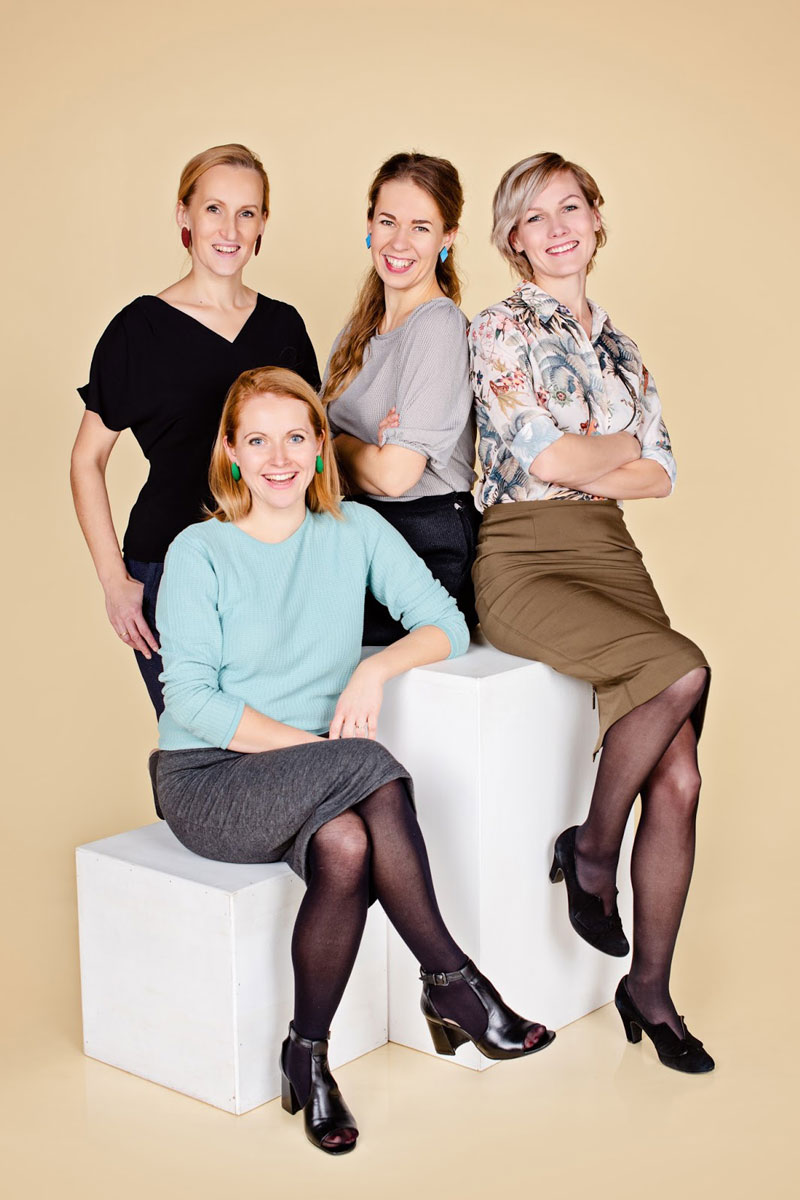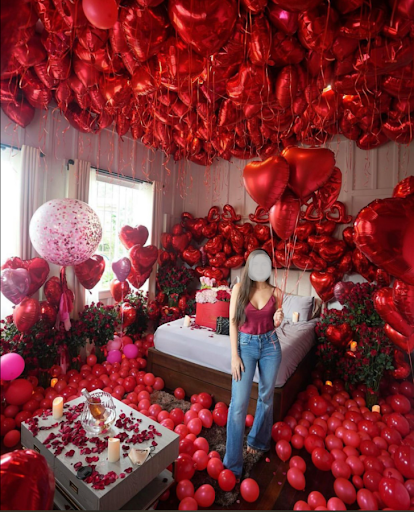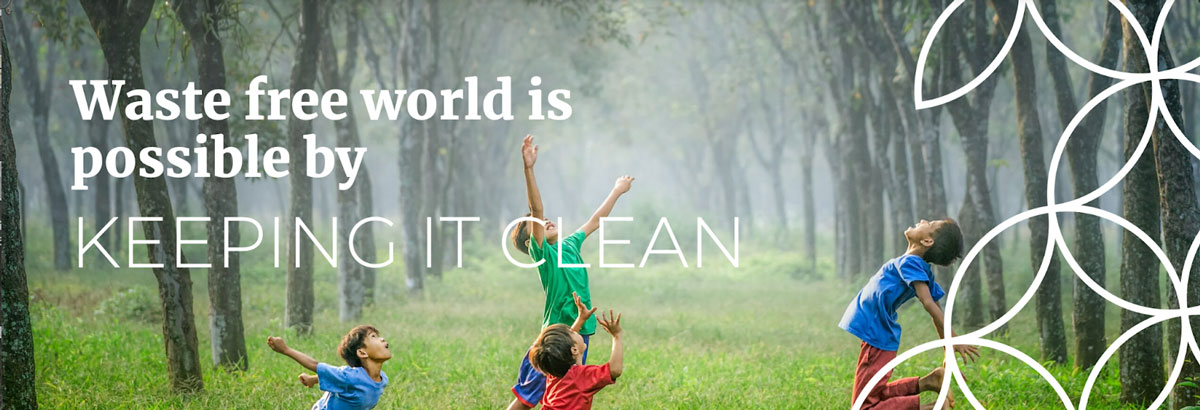Please introduce yourself(-ves) and your organisation?
Our team: Kristiina Kerge, Kadi Kenk, Merili Vares, Kadri Kalle. Altogether, we have 28 years in the organisation. Longest team member has been with the organisation since 2010. We are mainly based in Estonia but have always worked remotely from different cities.
Plastic has made it into the focus of Let's Do It Foundation with hard work. Our organisation is working with community leaders to lead societal change towards clean communities where waste is prevented or at least properly treated. Since plastic is either the most common waste article or at least the most problematic one everywhere, it is important to us that we are able to design smart solutions to deal with it in the communities we work.

Photo by Marika Talpas-Taltsepp | From left to right: Kristiina Kerge, Kadri Kalle and Kadi Kenk in the back row and Merili Vares in the front.
Why is plastic pollution an important issue for your organisation? What’s the story?
On the 15th of September 2018 on World Cleanup Day we united nearly 18 million people to pick up trash from the nature in 157 countries. It was the biggest civic action against waste and yet, it was still not enough. All the trash collected amounted to what is generated in Indonesia in just half a day. Only 15% of it made it to recycling.
Let's Do It Foundation took to its mission to tackle the problem at source. Unsurprisingly, most of the waste we see mismanaged is plastic. While people can have a comparatively similar impact when cleaning, they can have a substantially greater impact as influencers in their communities. This is why we put together a helpful guideline – the Keep It Clean Plan, to help anyone get started who feels they could do more.
Tell us more about your ongoing campaigns.
If you read a book 'How to become a millionaire?' how likely do you think it is that you will become a millionaire too? We are well aware that just knowing the reasons behind plastic pollution is not enough to change the situation. Our training programs and community building approach aims to first-and-foremost build courage and confidence to lead change.
1. We provide Training Programs for zero waste ambassadors in developing countries.
2. We organise accelerator programs for communities that want to put the knowledge into practice. It is one thing to know the zero waste solutions but quite another to apply the knowledge. We use the vast start-up experience from Estonia and aim to introduce real zero waste unicorns through these programs. Sometimes we can't escape the obstacles that face us on our way to transition, our program aims to support participants to work their way around them!
3. Clean Cities is a specific service we provide to municipalities to help them design waste out of the system.
4. Tech tools - We have developed a waste detection algorithm WADE that can help automate the collection and analysis of waste data on imagery and videos. The tool is free on GitHub, but we support authorities and organisations in applying it to their operations
When did your organisation become a core member of BFFP?
We joined in 2016. Being a part of BFFP helps to position ourselves as a change maker in this complex system. Having peers that work on all the various issues around the plastic pollution makes us stronger when talking to stakeholders. It is also a goldmine of information - I doubt there are questions that would not find an answer in this movement.
What is the most ridiculous plastic product or packaging that you have seen?
1. All the products that don't have any actual function - all the valentines day blinking heart-stuff, palm tree or bird shaped cocktail decorations etc
2. Blinking sneakers, free s**t for kids (plastic toys, badges, stickers)
3. All the stuff that imitates other materials but you find out that it's actually made of plastic (from leather to wood, pearls and ceramics)

What do you find shocking in the plastic waste landscape that you think everybody should know about?
1. The prettier and more colourful the packaging and things, more chance of ending up in the landfill or being burned
2. That shopping receipts contain high volumes of BPA making them harmful for human health AND polluting recycled paper!
3. The majority of plastic packaging is not recycled and/or cannot be recycled - why is this even allowed?
4. The size of a land and amount of water that is used to produce this single use "free" stuff the retail store gives out, even if we all refuse to take it it has already been produced




